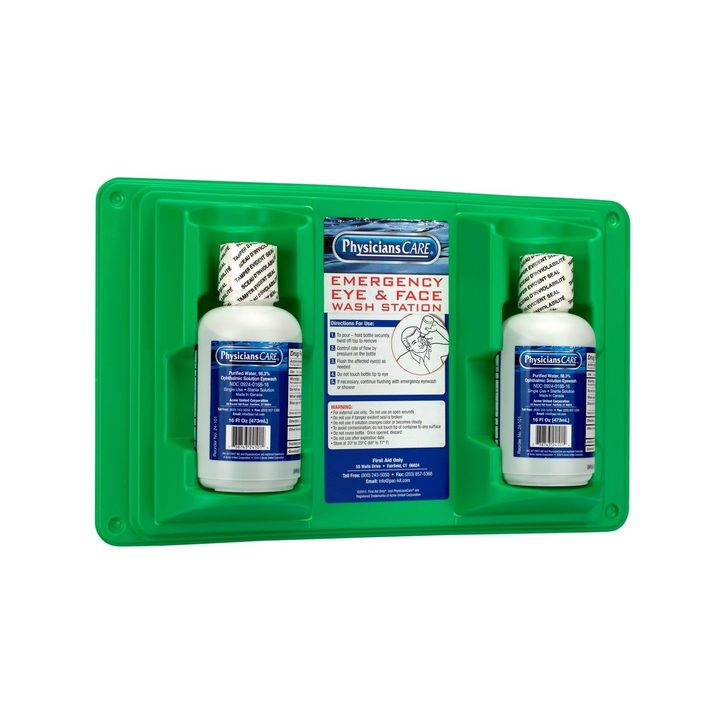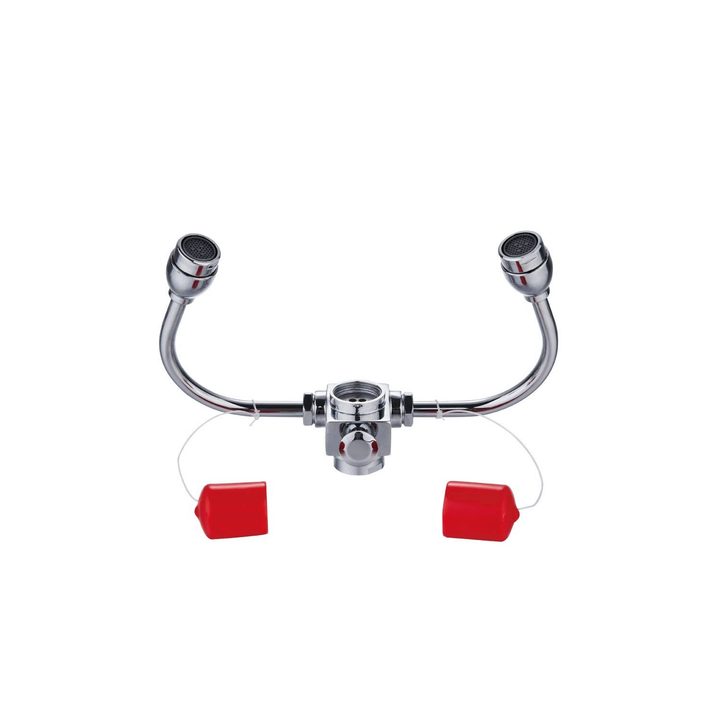Enable your team to work with confidence and trust. Make sure you are ready to face any type of emergency with one of the highly vetted options we have found for you by researching and comparing the best eyewash stations for any type of need, budget, and preference.
The lack of proper emergency-eyewash stations is one of the top reasons business get OSHA citations. It is crucial you comply with this safety measure in any industrial and labor site. Whether it is a first-aid kit version or a fully functional station with running water, having the proper eyewash capabilities might be the difference between a scare and an injured worker who can push you into a severe liability.
PhysiciansCare Double Bottle Eyewash Station
Best overall

The PhysiciansCare Double Bottle Eyewash Station is perfect for those remote worksites or places that lack a safety infrastructure. This two-pack of bottled eyewash is super portable and can be made available in almost any situation. It helps clean the eye from any foreign material to relieve itching and burning. Meets OSHA regulations 29 CFR 1910.151.
Plum Single Eyewash Station
Best enclosed eyewash station

Provide quick access to first aid in case of an emergency with the Plum Single Eyewash Station, a compact yet effective way to clean and soothe your eyes. The sterile sodium chloride solution is similar to the eye’s natural lubricant and includes an ergonomic eyecup for ease of use. It comes with a handy box that can be mounted onto walls or trucks.
Beauty Kate Faucet Mounted Eyewash Station
Best sink eyewash station

For those worksites with access to a faucet and sink, the Beauty Kate Faucet Mounted Eyewash Station is a professional-level appliance that can be used at a lab, factory, industrial site, or even at home. Just screw into your already installed faucet, and you have a premium solution to any eye emergency.
Protect your business from liability and offer your workers access to first aid in case of an emergency with one of the multiple solutions we have selected for you. Reduce the extent of any possible injuries by installing the best eyewash station you can to ensure a safe workspace.



